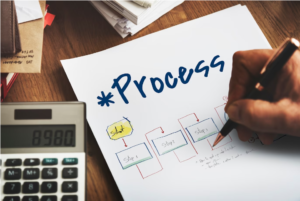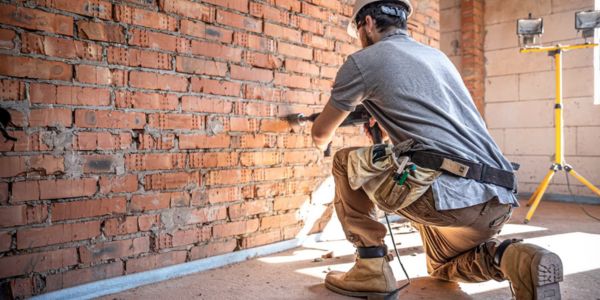Self-Employed Mortgage Brokers
Getting a mortgage can be intimidating, especially when self-employed. However, it is not impossible.

A mortgage broker should provide suitable options after understanding your employment situation and requirements. When applying for a mortgage, demonstrate your ability to handle monthly repayments. There isn’t a separate category of loans for self-employed individuals; everyone is evaluated equally.
The quality of mortgage advice relies on facts, knowledge, and experience, not personal opinions. The saying “Knowledge is power” is particularly true for mortgages. Ensure the broker you consult is a Financial Service Authority (FCA) member. This enables them to provide expert guidance on self-employed mortgage matters.
When contemplating a mortgage, seek advice from industry experts. They possess current market information and understand regulations and lender practices. Therefore, they can offer impartial guidance to help you make the right decision. Considering this, we present “Self-Employed Mortgage Brokers | 7 Effortless Strategies!”
When are you considered self-employed?
Depending on your financial situation, you might need to provide various documentation and proof of income. To ensure readiness and cover all expenses, including the deposit and fees, organise your finances proactively. Further details about this will be discussed later.
Being well-prepared allows you to take full advantage of the housing market. This readiness lets you seize opportunities, like finding a dream property at a good price. Additionally, it prepares you for inflation rate changes that could impact your finances.
What are the self-employment documented requirements?
Don’t be disheartened if you’ve been self-employed for over two years. Although obtaining mortgage approval might be more challenging, it’s entirely feasible. First, evidence of future contracts showing net profit growth potential should be gathered. This demonstrates financial stability and future income prospects. Next, choose a reputable broker to assist with your mortgage application.

The primary challenge self-employed individuals face in securing a mortgage is predicting their income accurately. This is more difficult compared to someone with a traditional employment arrangement. Consequently, you must provide the following documents when applying for a self-employed mortgage.
Firstly, you’ll need two or more years of certified accounts. This applies whether you’re a sole trader, company director, or partner. SA302 forms or a tax year overview from HMRC for the past two or three years are also required. These documents are crucial in verifying your income.
Furthermore, evidence of previous and upcoming contracts is essential if you’re a contractor. This demonstrates your future earning potential. Additionally, company directors must provide evidence of dividend payments or retained profits. This shows the financial health of your company.
While securing a mortgage as a self-employed individual can be challenging, proper documentation can significantly improve your chances.
How many years of accounts?
Self-employed mortgage brokers are well-placed to answer this question. Most lenders prefer accounts prepared by a certified accountant when applying for a loan. Even if you have been trading or contracting for under twelve months, some mortgage providers may still accept your provided data.
However, it’s essential to note that your first year in business could show smaller profits or higher start-up costs. This can limit your borrowing capability.
How do different types of businesses affect mortgage applications?
Limited Company: When forming a limited company, business income remains separate from personal finances. Essential roles include the Director and Company Secretary. Applicants pay themselves a salary with additional dividend payments. Therefore, lenders must assess all aspects to determine mortgage affordability. They need to see the complete financial picture.

Sole Trader: Being a sole trader offers advantages. It’s easy to keep track of records. Lenders base income on profits. HMRC calculates everything through their self-assessment system. It provides an SA302 form outlining the total income and tax due. This form is necessary for mortgage applications. With some organisation and analysis, managing taxes is straightforward for sole traders.
Partnership: When a mortgage client is in a partnership, the lender must assess both partners’ profit contributions. This ensures an accurate income assessment.
Can you claim your mortgage as an expense against tax?
Only the interest portion is eligible for expense deductions if you have a mortgage on your home. To determine how much can be claimed back, divide the total repayment amount by 100. Then, multiply that by the interest percentage. To assess office use, divide the hours you spent in your home office by 720. This reveals the percentage of interest you can take credit for.
When a prospective mortgage client has partnered with someone else to start a business, the lender must view both partners’ profit contributions. This helps to assess their income accurately.
Investing in Buy-to-Let properties
Self-employed mortgage brokers will take you through the world of buy-to-let. If you’re interested in investing in a buy-to-let property, securing the necessary mortgage typically requires more substantial deposits than seeking a home. However, despite this initial cost, it’s an incredibly reliable way to make passive income due to the high demand for rental properties and the gradual increase of house prices over time.
 Additionally, your projected rental income must be taken into account as well. To ensure you meet lenders’ requirements, your rental income should be 125-145% of the mortgage payments. A written confirmation from an ALRA-certified letting agent is required to demonstrate this. Then, pick up a low-risk but high-yield property for more incredible eligibility with loan providers.
Additionally, your projected rental income must be taken into account as well. To ensure you meet lenders’ requirements, your rental income should be 125-145% of the mortgage payments. A written confirmation from an ALRA-certified letting agent is required to demonstrate this. Then, pick up a low-risk but high-yield property for more incredible eligibility with loan providers.
If you want to invest in Buy-to-Let properties, joint mortgages and products are available for up to four investors. However, the amount borrowed may not be significantly higher due to rental income being used as a deciding factor. An alternative solution would be purchasing via an SPV (Special Purpose Vehicle), which could offer substantial long-term tax savings.
If you’re looking to transition from a residential mortgage to a buy-to-let option, it can be done with the help of new lending by using this process: pay off the former debt and start anew on better terms. However, before taking such steps, individuals should consider all responsibilities and costs associated with becoming a landlord and research any tax implications for self-employed persons. Joint investments may require a more thorough approach. An explicit agreement is essential in that case. Speak to your professional adviser or real estate broker with additional questions.
How do self-employed mortgage brokers help?
Self-employed mortgage brokers are crucial allies in the mortgage application process. They know which lenders will lend and require a few years of accounts. Additionally, they offer competitive rates. A broker can advise applicants, helping them navigate the loan application process and manage their finances strategically.
Firstly, keep up-to-date records of all income and expenditure. This is essential for a successful application. Moreover, hiring a certified or chartered accountant can provide further assurance. Next, speak to a broker about all available options. They can offer tailored advice based on individual circumstances.
Furthermore, avoid minimising income too much for tax purposes. This can adversely affect mortgage security. Ensuring accurate income reporting is key.
Self-employed mortgage brokers are vital in helping individuals navigate the mortgage application process successfully.
Thank you for reading our publication “Self-Employed Mortgage Brokers | 7 Effortless Strategies.” Stay “Connect“-ed for more updates soon!







